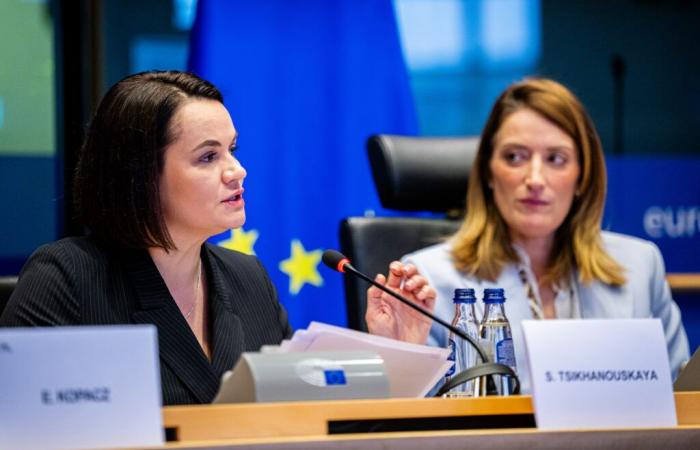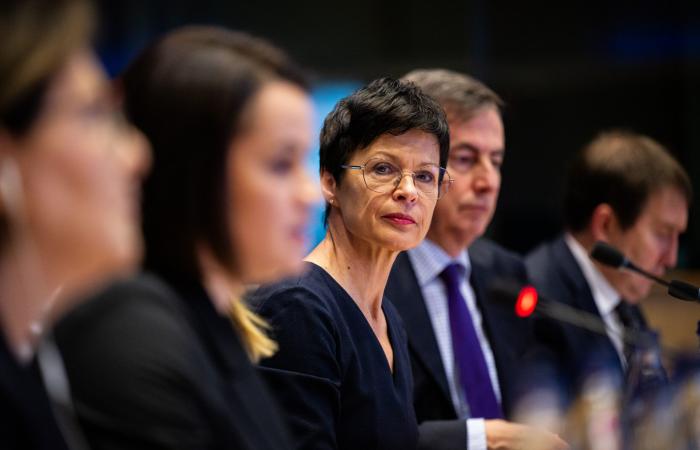Brussels – Syria teaches us that “dictatorships seem invincible until they suddenly collapse, and even a powerful ally cannot save a dictator.” These were the words of the exiled Belarusian opposition leader, Sviatlana Tsikhanouskaya, at a conference in the European Parliament in Brussels. As Belarus prepares for “sham” elections scheduled for Jan. 26, 2025, the EU is consolidating support for democratic forces and the civilian population oppressed by Lukashenko’s regime with a new €30 million assistance package.
Tsikhanouskaya – a leading figure in the opposition to Lukashenko since her presidential candidate husband was arrested and imprisoned during the 2020 election campaign – met yesterday in the European capital with the EU High Representative for Foreign Affairs, Kaja Kallaon the sidelines of the fourth meeting of the Consultative Group between the European Union and Belarusian democratic forces and civil society. Today (Dec. 12), she participated together with the president of the European Parliament, Roberta Metsolaand the EU Commissioner for Enlargement, Marta Kosin a high-level conference at the European Parliament.
It is a decisive moment: following the 2020 vote, the wave of protests that swept Belarus nearly caused the downfall of Lukashenko, in power since 1994, only to be quelled by the regime’s brutal response, which forced Tsikhanouskaya to flee to Lithuania, where she still resides. Four years later, “we are still ready for change and democratic transition,” Tsikhanouskaya told the European Parliament. However, the Belarusian opposition and Brussels are well aware that – as stated in a statement from the European External Action Service (EEAS)- “Currently, in view of the ongoing repression, conditions for democratic elections are not in place.” Moscow’s puppet Lukashenko is likely to triumph for the seventh time.
Since the 2020 protests, Belarusian authorities have arrested 65,000 people, shut down more than 1,700 civil society organizations, and banned all but four political parties, all pro-Lukashenko. The EU expressed “deep concern about the approximately 1,300 political prisoners still unjustly detained” and condemned “the intensification of detentions and acts of repression ahead of the so-called January elections.” According to the Minsk-based Center for Human Rights VIASNA, in November, over 100 people were arrested on charges of extremism ahead of the election.
Tsikhanouskaya said that elections will be a “farce,” stressing that even though “we do not know exactly how and when the change will come to Belarus, we must be prepared.” The EU is trying to do its part: speaking at the conference at the European Parliament, Commissioner Marta Kos announced a new 30 million euro assistance package for the people of Belaruswhich “will help support independent voices, protect human rights defenders, and help culture and education in exile.”
Since the fierce repression of the pro-Russian dictator in 2020, the European Commission has allocated 170 million euros to the Belarusian cause. Solidarity has made it possible, for example, to “provide legal and medical assistance to more than 3 thousand victims of the repression, scholarships to over 3 thousand students, and support thousands of businesses in exile,” Kos pointed out. Tsikhanouskaya made a desperate appeal at the European Parliament: “The EU is more than just a partner for us. It is the only alternative to the Russian world.”
English version by the Translation Service of Withub







